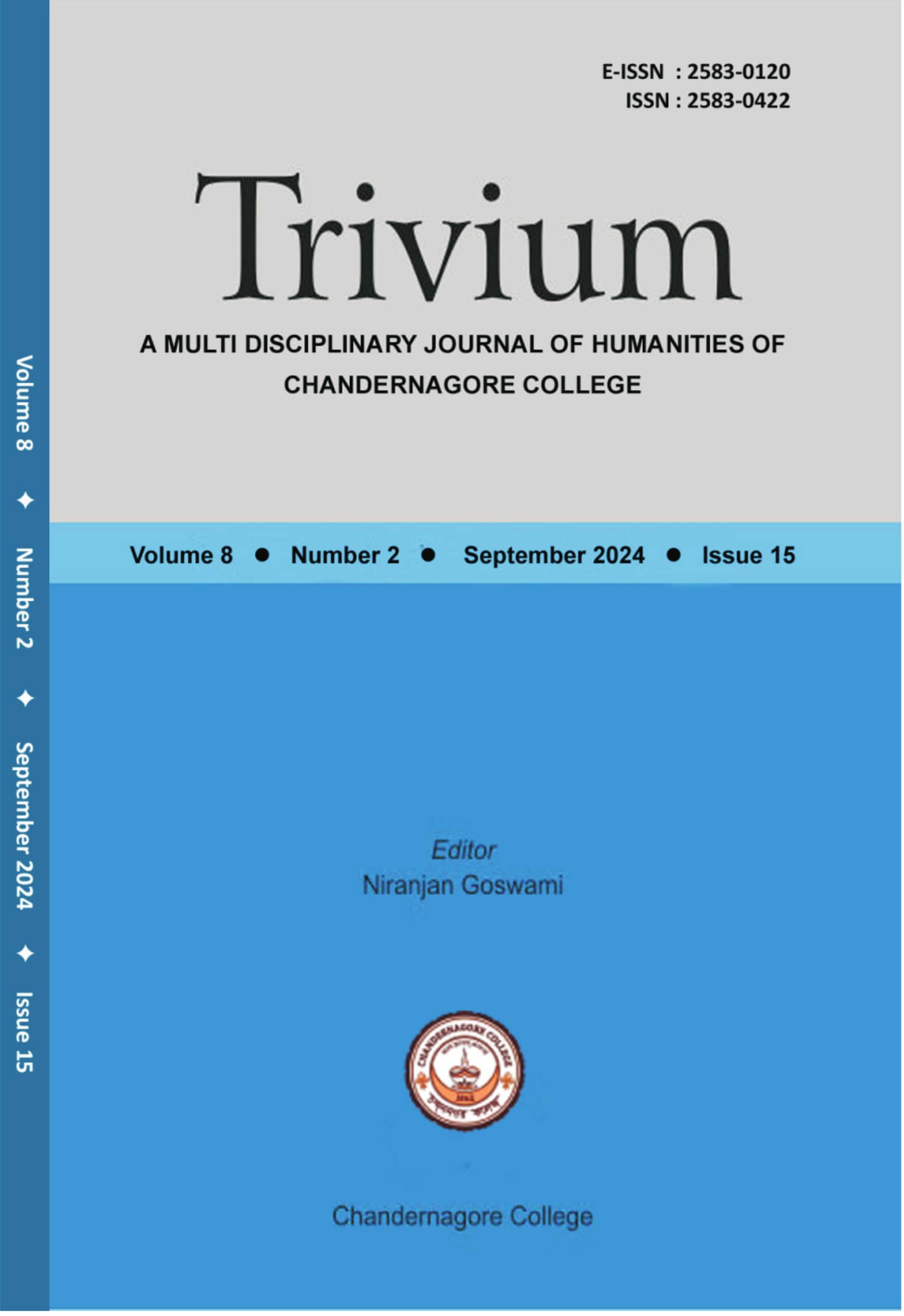Latest Issue
VOL : 8
⚫
NO : 2
⚫
ISSUE : 15
⚫
September 2024
This issue of Trivium brings together a wide range of disciplines like matrimonial discourse; interconnectedness of literature, music and art; theology; popular culture; school education; philosophy of friendship; Vedanta philosophy; and nineteenth-century popular Bengali publication. This issue is also unique in having two essays on theology and three essays in Bengali language.
Sarita Mal analyzes matrimonial discourses as observed in matrimonial advertisements with the help of semiotics and critical discourse analysis. She concludes that the results indicate lingering patriarchal notions of female beauty and wives as trophies.
Rupanjana Ghosh attempts to draw parallels between Eliot’s Prufrock, Mahler’s Second Symphony and Manet’s paintings in the process revealing the inner structures of Modernist angst and moods. Ayotunde and Alamu in their study point out that Apostle Paul’s concept of church planting remains an abiding idea and show the relevance of this biblical model in today’s Nigeria. The authors undertake a painstaking discussion of St. Paul’s message and its theoretical framework as well as actionable potential.
Saubhagya Mukherjee delves in the domain of popular culture by focusing on Marvel’s She-Hulk series. Taking up the relatively less discussed notion of female masculinity, the author breaks new ground and provides a fresh perspective from the angles of feminism and gendering.
Alamu, Taiwo and Olulowo take up 1 Peter 2: 13-17 and elaborate the concept of submission to authority in the Bible and its relevance for Christians in modern times. The authors take an historical approach and trace the context of Peter’s message. They further go on following the method of biblical exegesis and extract the continuing significance of the text for the modern Nigerian audience.
Ogbinaka and Ayodeji in an interesting paper suggests that the autochthonous skill-centric training system of Nigeria should be assimilated with the secondary and plus system of education leading to overall improvement of school education in Nigeria. They build their proposals in the context of the history of colonial education system and suggest developing a ‘talent building’ system in its place.
Mosaref Hossain writes on the philosophy of friendship, tracing its roots in Plato, Aristotle and Kant and continues to elaborate the development of Gadamer’s concept of solidarity. The author traces the relevance of the concepts of eudaimonia, philautia and solidarity in a world of social media where true friendship is often lost sight of. The author suggests that the moral basis of friendship remains a beacon till this day.
Souvick Biswas’s paper attempts to trace the origin of Shankara’s philosophy of Maya in the Vedic literature, bringing into focus both the ontological (Tattvamaya) and the linguistic (Shabdamaya) ramifications. Through a philological survey of the word Maya the author convincingly establishes the fact that the word found repeated use in the ancient Vedic writings.
The last essay by Sudeb Bose is solidly rooted in the nineteenth-century studies as it takes up the popular writings of the period known as Bottola publications which were a low-brow entertainment, instruction and social phenomena at the same time. The author’s discussion encompasses the social, economic, commercial and cultural contexts of these publications.


